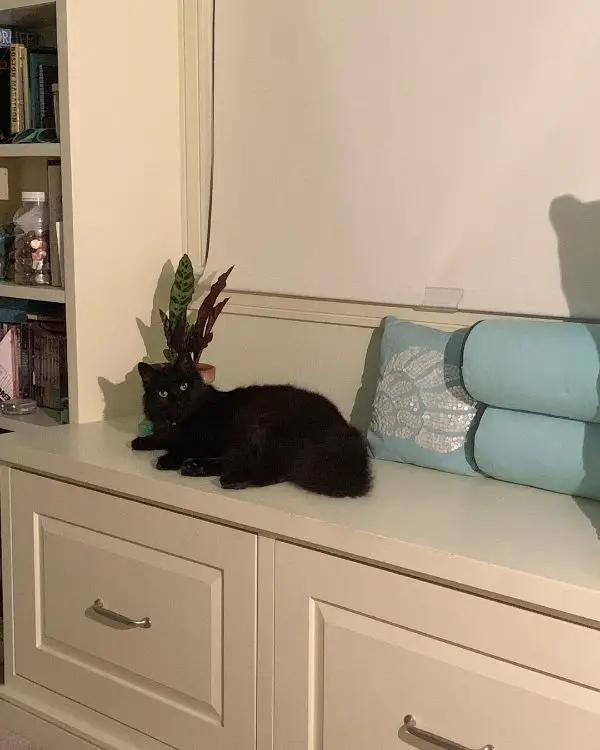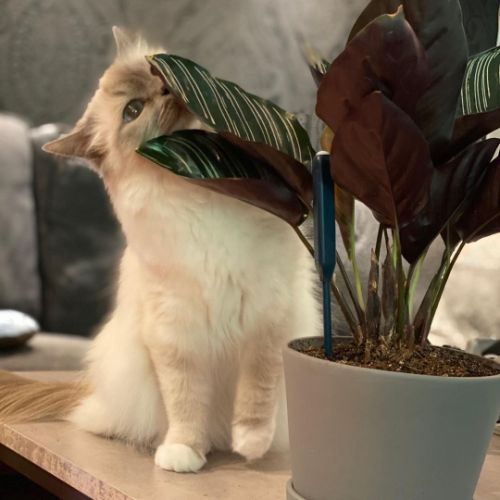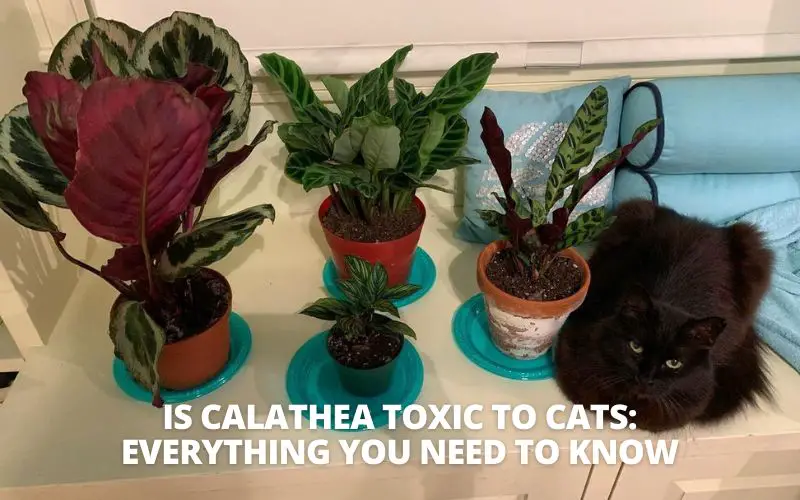This is a question that many cat owners may be wondering about. The answer is not as straightforward as you might think. In this blog post, we will explore the toxicity of Calathea plants and whether or not they are harmful to cats. We will also discuss some of the symptoms that may occur if your cat consumes a Calathea plant. Keep reading for more information.
Is Calathea toxic to cats?
The answer is not as straightforward as you might think. While Calathea plants are not considered to be toxic to cats, they can cause some gastrointestinal upset if consumed in large quantities.
Symptoms of gastrointestinal upset may include vomiting and diarrhea. If your cat consumes a Calathea plant and begins showing any of these symptoms, it is important to contact your veterinarian right away. Treatment for a gastrointestinal upset is typically supportive and may include intravenous fluids and rest.
In conclusion, Calathea plants are not considered to be toxic to cats. However, they can cause some gastrointestinal upset if consumed in large quantities. If your cat consumes a Calathea plant and begins showing any signs of illness, it is important to contact your veterinarian right away.
Why Is Calathea Cat-Friendly?
Calathea is a genus of popular houseplants that is known for its beautiful, colorful leaves. These plants are also easy to care for and are tolerant of low light conditions. However, one of the most appealing things about Calathea is that it is non-toxic to cats. This makes it a great option for households with feline family members.
There are many benefits to having a cat-friendly home. For one, it can help to reduce the risk of accidental poisoning. Cats are curious creatures and often like to nibble on houseplants. If a plant is toxic, this can lead to serious illness or even death. You can help keep your feline friend safe and healthy by choosing cat-friendly plants.
In addition, cat-friendly homes are more relaxed and stress-free for everyone involved. When cats feel comfortable and safe in their environment, they are less likely to exhibit problem behaviors such as scratching furniture or urinating outside of the litter box. This can make for a more harmonious household overall.

How is Calathea poisonous to cats?
There are a few different ways that Calathea can be poisonous to cats. The most common way is if the cat ingests the plant. The Calathea plant contains chemicals that can be toxic to cats if ingested in large quantities. Symptoms of toxicity include vomiting, diarrhea, and abdominal pain. In severe cases, Calathea toxicity can lead to liver damage and death.
Another way that Calathea can be poisonous to cats is if they rub against the plant and get the sap on their fur. If the cat then licks their fur, they can ingest the sap and experience the same symptoms as if they had eaten the plant directly.

You may also like: 16 Rare Calathea types Plants To Add to Your Wishlist
How to Keep Your Cat Away from Calatheas?
If you have a cat, you know that they can be curious creature. And, while Calatheas are not poisonous to cats, they can still cause stomach upset if ingested. Here are a few tips on how to keep your cat away from your Calathea plants:
- Use positive training methods: Never punish your cat for being curious, as this can make the problem worse. If you catch your cat near a Calathea, give them a tasty treat and praise them lavishly.
- Make sure your Calatheas are out of reach: Cats are known for their climbing abilities, so it’s important to place your plants on high shelves or in hanging baskets.
- Use a physical barrier: If you can’t keep your Calatheas out of reach, consider using a physical barrier like chicken wire around the base of the plant.
- Try a natural repellent: Some cat owners have found success using citrus-scented repellents or essential oils to keep their cats away from plants. You can also try spraying your Calatheas with water if your cat gets too close.
- Use of coffee grinds: Coffee grounds have an unpleasant smell that many pets can’t tolerate. So, should you be able to keep pets from your home, do it. However, you should not immediately sprinkle coffee grinds onto the soil. It is possible to make liquid fertilizer, and then apply it on your soil.
- Keep your Calatheas healthy: A well-cared-for plant is less likely to be attractive to a curious cat. Make sure you’re providing your plants with the proper light, water, and nutrients.
Conclusion
Calathea is a beautiful, low-maintenance houseplant that is safe for cats. However, it is important to take some precautions to keep your cat safe, such as keeping the plant out of reach or covering the pot with a mesh screen. If you notice that your cat is nibbling on the leaves or stems of a Calathea plant, this is a sign that the plant is potentially poisonous and should be removed from the home.


